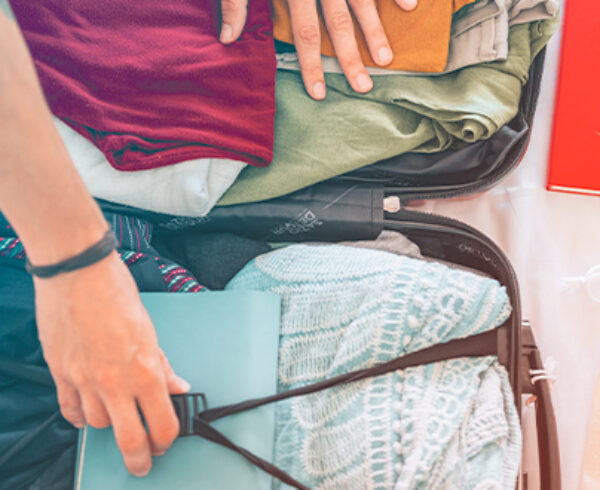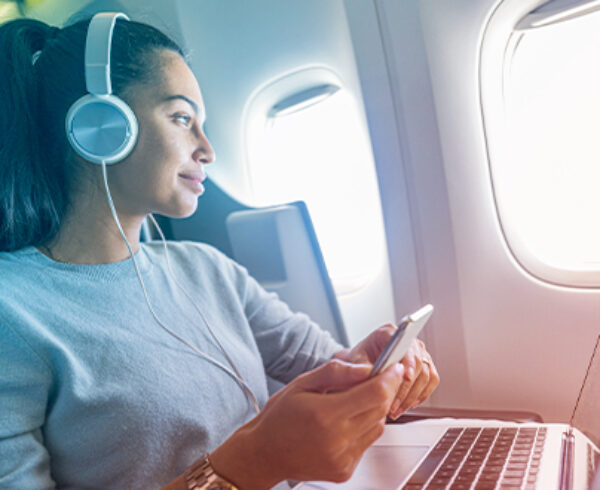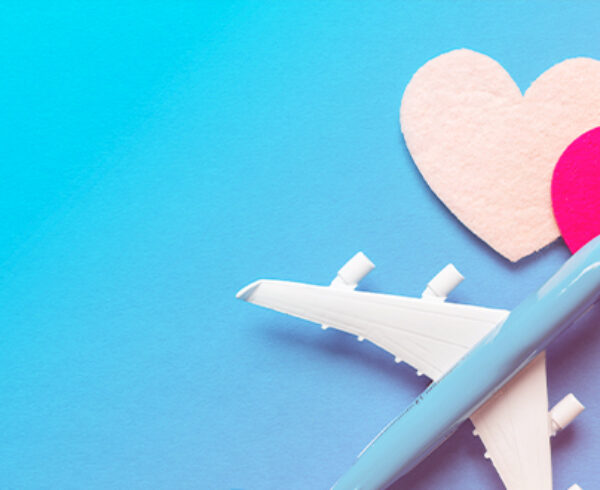A new study shows the different types of travel-related stress that business travelers experience on a regular basis.
April is Stress Awareness Month, which brings into focus just how taxing business travel can be both on the mind and body. If you regularly travel for work, travel-related stress is a fact of life. But why are flying and travel in general so difficult to deal with?
Below, see the results of a recent YouGov survey that brings to light the different ways that business travel affects workers, as well as insights on the science behind travel and its impact on mental health.

Survey Results: Heavy Workloads and Rampant Sleeplessness
In late 2019, YouGov surveyed 510 business travelers about their experiences in the preceding 12 months. The responses provide a unique glimpse into travel-related stress and the things about business travel that workers feel most acutely.
Here’s a rundown of the things that respondents said they experienced, from most widespread to least:
- 47%: Do not get enough sleep when traveling on business
- 32%: Challenged to stay on top of workload
- 31%: Staying healthy is harder when traveling
- 29%: Reported having to be constantly available
- 27%: Reported difficulty finding time to be alone during business travel
- 27%: Faced difficulty keeping track of business travel expenses and policies
- 25%: Have trouble connecting with friends and family
- 24%: Generally feel they are more likely to get sick following a business trip
- 24%: Personal expenses have increased due to business travel
- 24%: Worked more or overtime to catch up after business travel
- 23%: Have missed an important life event due to work travel
- 16%: Felt company doesn’t understand the impact of business travel
- 12%: Felt company didn’t support them well when traveling for business
Obviously, as indicated by the results above, different people feel travel-related stress in different ways. It’s essential that all business travelers are at least aware that their time on the road can create travel-related stress and unusual emotions so that they can properly address them.
The Science Behind Travel-Related Stress
A survey by London’s Gatwick Airport found that people are more likely to cry during movies when watched during a flight. In fact, flying thousands of feet above the earth’s surface can result in all sorts of strange phenomena, including mood alterations, changes in the way our senses work, and even an increase in itchiness.
Much of this is due to changes in oxygen levels and air pressure on flights. During flights, the amount of oxygen in passengers’ bloodstreams drops between 6% and 25%, which would be significant enough for a hospital to provide extra oxygen to a patient.
This drop in oxygen can make breathing difficult. It can prevent passengers from thinking clearly. It can negatively impact decision-making. And it can affect memory, too.
As these things are happening, business travelers are often answering emails, working on presentations, visiting with colleagues, etc. Upon arrival at their destinations, business travelers often head straight to important meetings or conferences. And, during all of this, business travelers are often trying to adjust their internal clocks to new time zones.
No wonder it’s all stressful.
What About Coronavirus-Related Stress?
Business travel can be stressful enough during normal times. During a pandemic like Coronavirus (COVID-19), traveling can be even more stressful. If you’re required to travel at this time, consider the following:
- Over-Communicate: Stay in close communication with your employer during this time. All employers have a duty-of-care responsibility to ensure you’re safe and secure while traveling for work, so communicate regularly about how they can support you while traveling during the coronavirus outbreak.
- Take Precautions: Take any and all precautions while traveling. Use hand sanitizer regularly. Wash your hands whenever you have the chance. And keep a distance of 6 feet from others as often as possible.
- Listen to Experts: The Centers for Disease Control and Prevention is the best authority in the United States for coronavirus-related information. Listen to experts like the CDC (and others) to get the best information.
- Plan Ahead: Due to reduced TSA personnel and air traffic capacity, several airlines have moved operations to different terminals in some major airports. Reconfirm your flights with airlines or your JTB Business Travel Advisor prior to departure to avoid missing flights or sitting at the airport. In fact, this advice would apply to all your travel reservations during this time.
Of course, taking the 4 actions listed above can’t limit stress entirely. But they should help.
Reducing Travel-Related Stress
Last year, we shared a post on how to limit travel-related stress. Making sure that team members are happy, healthy and productive during business travel should be a partnership between travel managers and travelers themselves.
Managers should help create policies and itineraries that promote health.
Travelers should practice self-care and take strides during trips to make healthy choices. At JTB Business Travel, we can provide support for both managers and travelers, helping to provide the support and flexibility needed for healthy travel. Contact us to learn more about our services and how they can enhance your company’s business travel.














Great post! Really very much informational thanks keep posting such article.